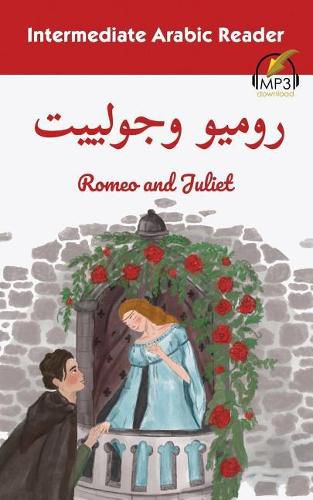Readings Newsletter
Become a Readings Member to make your shopping experience even easier.
Sign in or sign up for free!
You’re not far away from qualifying for FREE standard shipping within Australia
You’ve qualified for FREE standard shipping within Australia
The cart is loading…






The timeless love story of Romeo and Juliet has been brought to life for the first time as a novelized adaptation for learners of Modern Standard Arabic. This story was chosen as it is well known to Western audiences; being familiar with the characters and plot of a story will help you focus less on what the story is about and more on the language.
The story has been divided into eight chapters of similar, manageable length for learners. Each chapter features: 1) the text with diacritics (tashkeel); 2) English translations; 3) Vocabulary lists When the name of a character or place makes its first appearance in the book, it is shown in bold. Words and phrases that appear in the vocabulary section (glossary) are underlined in the text with a subtle dotted line. They are organized by order of appearance and grouped by the page number on which they appear. A noun or adjective will be listed in its singular form, and if its plural is irregular, this will be shown in parentheses. A verb will be shown in its base form followed by a reference code in small square brackets. This corresponds to a table showing the verb’s complete conjugation patterns in Lingualism’s book Modern Standard Arabic Verbs. The masdar (gerund) of unaugmented (measure I) verbs is given in parentheses. The masdar for augmented verbs is also normally given when they appear in the book. Many nouns (including masdars) and adjectives (including active and passive participles) act as adverbs in the indefinite accusative case or in conjunction with a preposition. These are often glossed as the basic form of the word, so you can see each word’s original meaning and how it can be used as an adverb in context.
$9.00 standard shipping within Australia
FREE standard shipping within Australia for orders over $100.00
Express & International shipping calculated at checkout
The timeless love story of Romeo and Juliet has been brought to life for the first time as a novelized adaptation for learners of Modern Standard Arabic. This story was chosen as it is well known to Western audiences; being familiar with the characters and plot of a story will help you focus less on what the story is about and more on the language.
The story has been divided into eight chapters of similar, manageable length for learners. Each chapter features: 1) the text with diacritics (tashkeel); 2) English translations; 3) Vocabulary lists When the name of a character or place makes its first appearance in the book, it is shown in bold. Words and phrases that appear in the vocabulary section (glossary) are underlined in the text with a subtle dotted line. They are organized by order of appearance and grouped by the page number on which they appear. A noun or adjective will be listed in its singular form, and if its plural is irregular, this will be shown in parentheses. A verb will be shown in its base form followed by a reference code in small square brackets. This corresponds to a table showing the verb’s complete conjugation patterns in Lingualism’s book Modern Standard Arabic Verbs. The masdar (gerund) of unaugmented (measure I) verbs is given in parentheses. The masdar for augmented verbs is also normally given when they appear in the book. Many nouns (including masdars) and adjectives (including active and passive participles) act as adverbs in the indefinite accusative case or in conjunction with a preposition. These are often glossed as the basic form of the word, so you can see each word’s original meaning and how it can be used as an adverb in context.